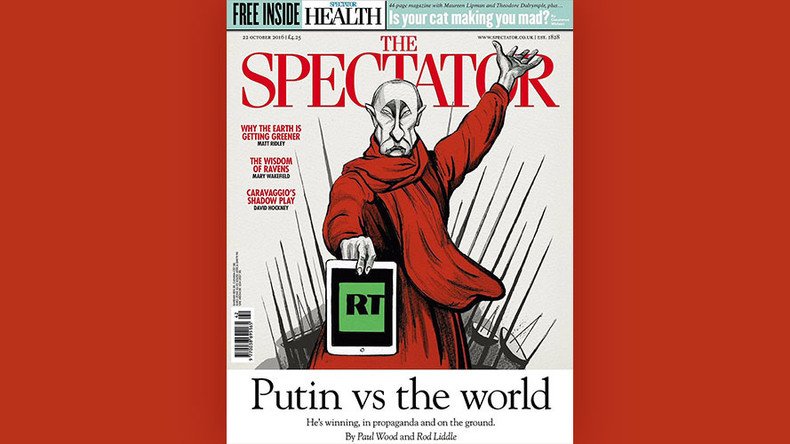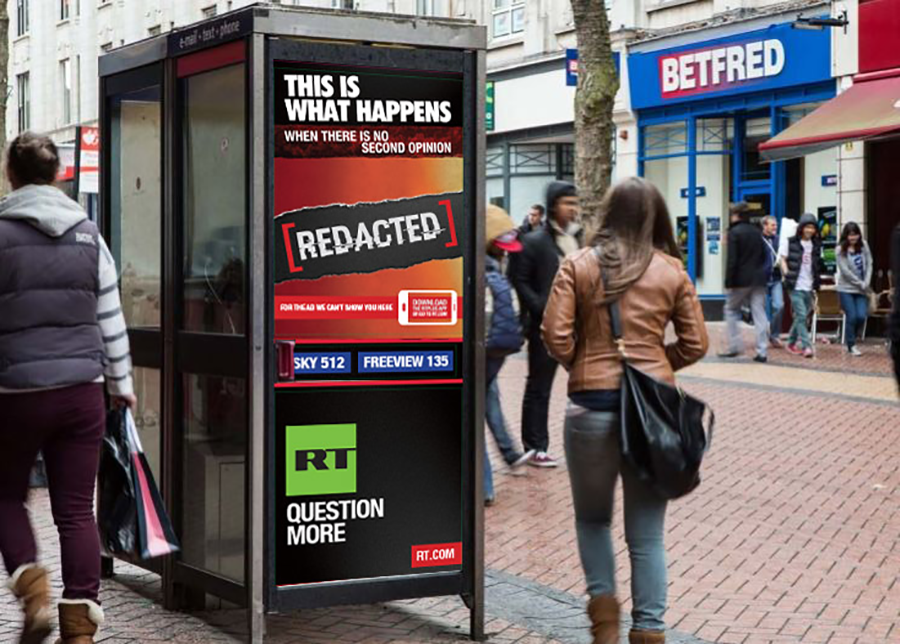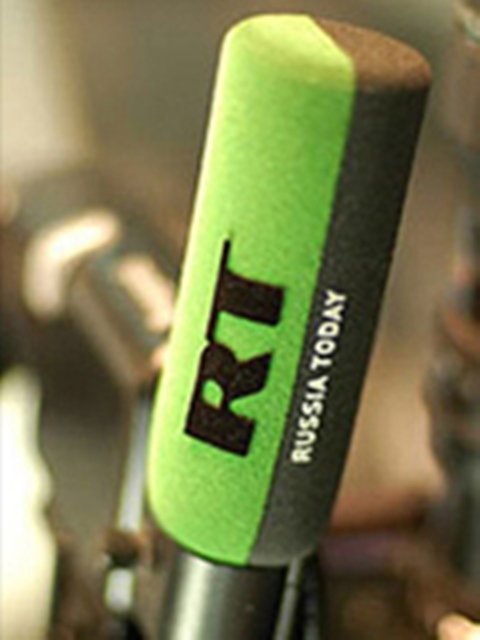RT in UK: A brief history of establishment hysteria

The NatWest account closure is only the latest entry in the channel’s saga in the UK.
Over the last couple of years, certain voices in the UK media – and the wider establishment – have been feeding a wave of hysteria over the channel’s presence in the British market. Here are the highlights:
October 2014 – Posters for RT’s “Second Opinion” ad campaign are rejected for outdoor posting by several London platforms for having what they called “political undertones.” Instead, RT puts up a “redacted” version of the posters, which use the example of the Iraq War to draw attention to the importance of diversity in the news media.

November 2014 – The network officially launches RT UK, a dedicated channel broadcasting from its own studios in London. The British mainstream media, predictably, freaks out.
December 2014 – John Whittingdale, chair of the Commons Culture, Media and Sport Select Committee, lamented “It is frightening, the extent to which we are losing the information war,” with Peter Horrocks, a former top executive of the BBC’s global news operation, explaining to The Guardian that the Beeb was losing ground to RT because it is “financially outgunned.” The problem with Horrock’s contention is that it simply isn’t true. That year, the BBC World Service ALONE was allocated a 2014 budget of £245 million ($382 million at that time), primarily for radio and online services. RT, with its much costlier TV signal distribution, received 15.38 billion rubles ($271 million then).
January 2015 – The British Army announces it is creating a special force of “Facebook warriors” – a 1,500-strong brigade of professional soldiers to promote UK narratives on social media platforms. According to the Guardian, part of the justification for the move was that Russia’s point of view is resonating with the UK audience.
February 2015 – The Economist’s senior editor, Ed Lucas, pays a lot of attention to RT – especially in his other gig as a lobbyist for American weapons manufacturers. In this instance, he calls for KGB methods to be used against RT’s staff. “I think we could do a bit more ostracism,” Lucas said at a Munich security conference,” just as RT journalists were coming under fire near Donetsk. “Far too many people see a job at RT as the first stage on a career ladder. It’s not. It’s the last stage on a career ladder,” he said.
READ MORE: RT responds to ‘ostracism’ calls by Economist editor at Munich conference
November 2015 – Larry King comes to London to promote his two shows “Larry King Now” and “Politicking,” which have been coming out on RT America and are about to start airing on RT UK. He grants an interview to BBC’s Evan Davis, who tries to give the legendary King of Chat a very hard time about working with RT. But BBC’s own viewers are not impressed.
I loved the surprise in @EvanHD's eyes when Larry King told him RT dont tell him what he can or cant say. #newsnight
— Omar Baggili (@OmarBaggili) November 3, 2015
Eventually, even Newsnight’s own Editor, Ian Katz, throws in the towel, writing “in case you missed... Larry King schooling our Evan Davis on the art of the interview.”
February 2016 – The BBC submits written testimony (made public over the summer) to Westminster’s Foreign Affairs Committee to justify demands for more funding, despite having just received £289 million for four years from the UK’s defense budget. The report outlines the reasons why RT’s success should create panic among the UK establishment: “Viewing figures for RT, Russia’s international news channel, have seen a sharp increase… It also operates very successfully on social media.” The Russians are coming! The British government nods along in response.
#BBC to #Westminster: ‘#RT is gaining ground! Show us the money!’ (Op-Ed) https://t.co/IGeonS4rCMpic.twitter.com/IcQUgmy9YE
— RT (@RT_com) September 10, 2016
August 2016 – The Times’ UK publishes seven pieces on the dangers of Russian media, mostly RT, over a single weekend. Obsessing much?
October 2016 – NatWest Bank, a subsidiary of Britain’s majority state-controlled Royal Bank of Scotland, gives notice that it is closing RT’s accounts – without explanation. Hundreds of messages and statements of support pour in from RT’s audience, NatWest/RBS customers, and UK public figures, who criticize the move as an affront to the UK’s principles of freedom of speech.
Support floods in for RT following NatWest accounts closure noticehttps://t.co/d9ksfbWXAk
— RT (@RT_com) October 17, 2016
Stay tuned!
The statements, views and opinions expressed in this column are solely those of the author and do not necessarily represent those of RT.














